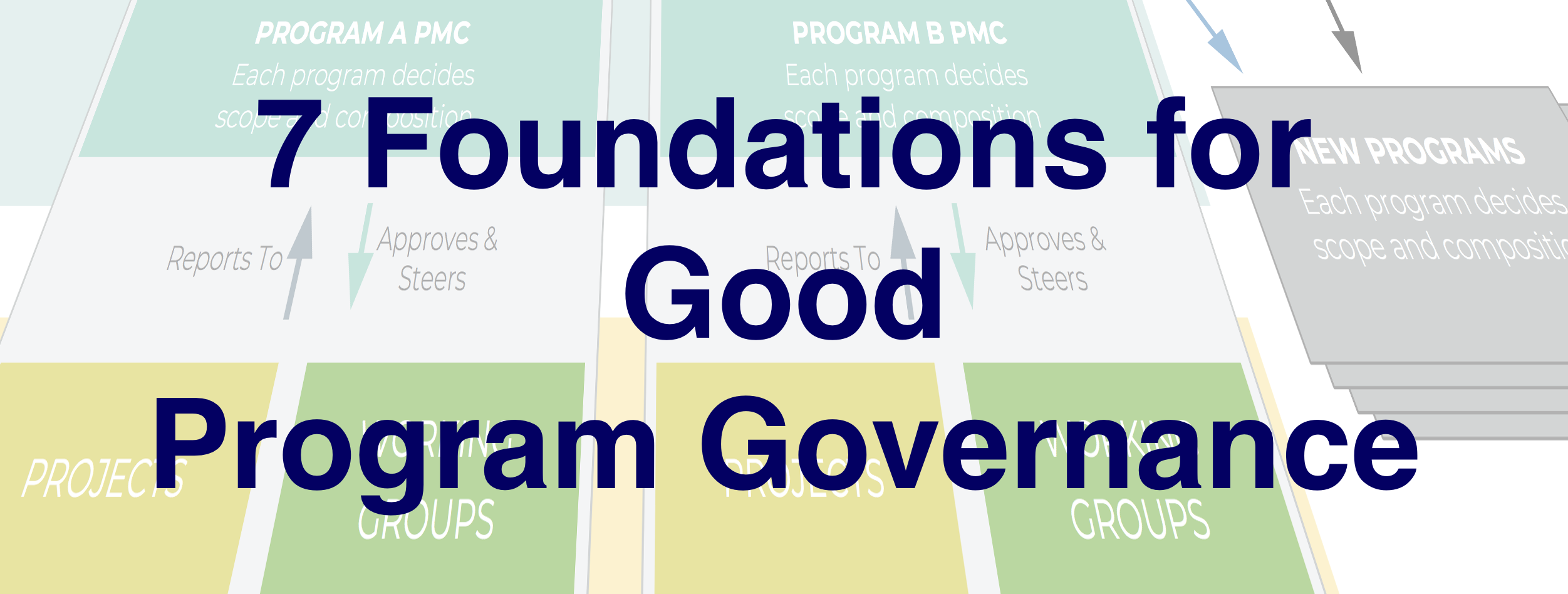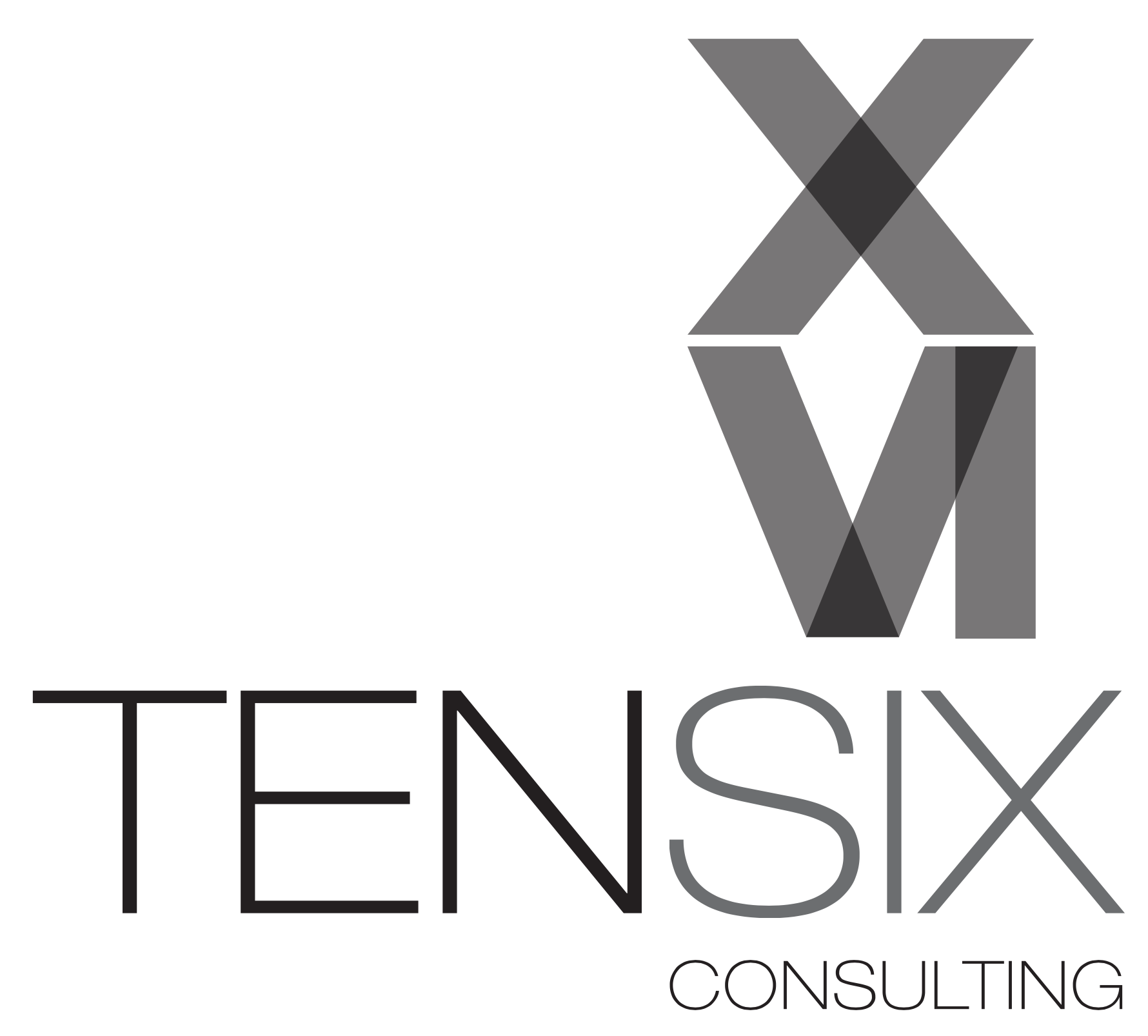 Foundations for Good Program Governance
Foundations for Good Program Governance
Before you can be successful at using project performance measurements and techniques like earned value management, it’s important to have the right foundations in place. Strong attention to detail for the basics will make it easier to build the layers of program governance required to deliver successful projects.
Here are seven foundations for good program governance. We can’t guarantee your program will be a success, but with these basics in place you’ve got every chance of delivering a result you can be proud of.
1. Executive leadership
Projects and programs typically have a sponsor, but the reality of complex work is that might be one or more people across one or more organizations. What is important for your governance framework is that there is clarity around the leadership structure. What forums make decisions? Who is responsible for what?
Creating delineation between roles and ensuring that everyone knows how the governance is set up is important. Document the program governance as it relates to roles. Use a RACI matrix or a roles and responsibilities document. Set out the terms of reference for any governance boards and document who sits on them and in what capacity.
If executives are new in post, or new to working on this kind of initiative, they should undergo executive overview training so they are familiar with what is expected of them and how to interpret the data coming out of the program team.
2. Scheduling best practices
Project schedules need to be realistic and achievable. The team should look at the scheduling practices in use and be critical about them. Governance around the schedule might look like transparency around estimating practices, clarity on what tolerance or contingency has been added to activities, and peer reviewing a colleague’s work to share knowledge and experience within the team.
Schedulers should have the tools and skills to create workable schedules. They should undergo scheduling training and be familiar with PMI’s Practice Standard for Scheduling and the DCMA 14-point schedule assessment, as well as any other relevant guidance.
3. Project performance management
PMI reports that 11.4% of project investment is wasted due to poor project performance. Fortunately, it doesn’t have to be that way. Techniques like earned value management and clear project reporting help surface what’s really going on. Try to standardize how projects and programs are reported so executives get used to seeing reports in the same format.
Performance management is more than simply reporting progress. It is also about empowering teams to take the relevant action to bring the project back under control. That might be having clear guidance for accessing management reserves, delegated authority or something else that allows teams to do what is needed – with support where necessary – to actively manage performance instead of just report on it.
Decision-makers are better informed when progress is clear. In turn, that should lead to better quality decisions within the governance framework. The gate process, or phased sign off at the end of each stage, is a way to ensure the project moves forward only when specific criteria are met and it can be shown to be under control.
4. Culture
Culture might only be a short word, but it has long-reaching implications for governance. Invest time in creating the culture you want to work in. We think that should be honest, ethical, trustworthy and professional. Project governance should be aligned to your corporate values – why wouldn’t it be?
A good project management culture makes it easy for people to raise issues without fear of blame. Teams know that they will be supported when problems happen. There are clear routes for escalation and projects are reported honestly at the status of Red when that is appropriate. Challenged projects are given the attention they deserve to get them back on track and there are open channels of communication with clients as well.
5. Risk management
Risk management practices are crucial to underpin good program governance. Risks should be identified and managed at project level, with key risks escalated to the program level as appropriate. Risk management should be part of how everything is done, not a single process that people remember to do once a month.
Ideally, schedules should be created with risk in mind. Run scenarios to identify the implications of different risk situations and plan accordingly. Larger projects or programs may have a risk manager in post to run the risk management processes on an ongoing basis and report to the board.
6. Funding processes
Programs need funding, so there should be strong financial management processes in place to underpin the work of the delivery teams. This covers everything from estimating to control account management and financial reporting.
The financial processes for an individual program are usually influenced by the processes for the organization as a whole. Cost reporting and accounting is done in conjunction with the processes and teams across the organization, unless a specific entity has been created for the project.
7. Independent assurance
Finally, a good governance structure can operate in an independent way. In other words, there are no conflicts of interest. The role of the governance function is to provide independent assurance that the project or program is being carried out in an appropriate way. That includes being compliant with organizational policies, compliant with regulation and contract requirements and operating with integrity at all levels.
Sometimes it’s easier to gain independent assurance from an external party, and we support clients with EVMS certification readiness, scheduling support and broader knowledge transfer, mentoring and coaching across a range of topics and tools. If you don’t have the skills in-house, using expert consultants is a fast way to assure yourself that the program performing to an acceptable level.
There is more to good program governance than these seven points, but they provide a robust foundation from which to build on. Start there, and see what a difference it makes to your project success rates!
